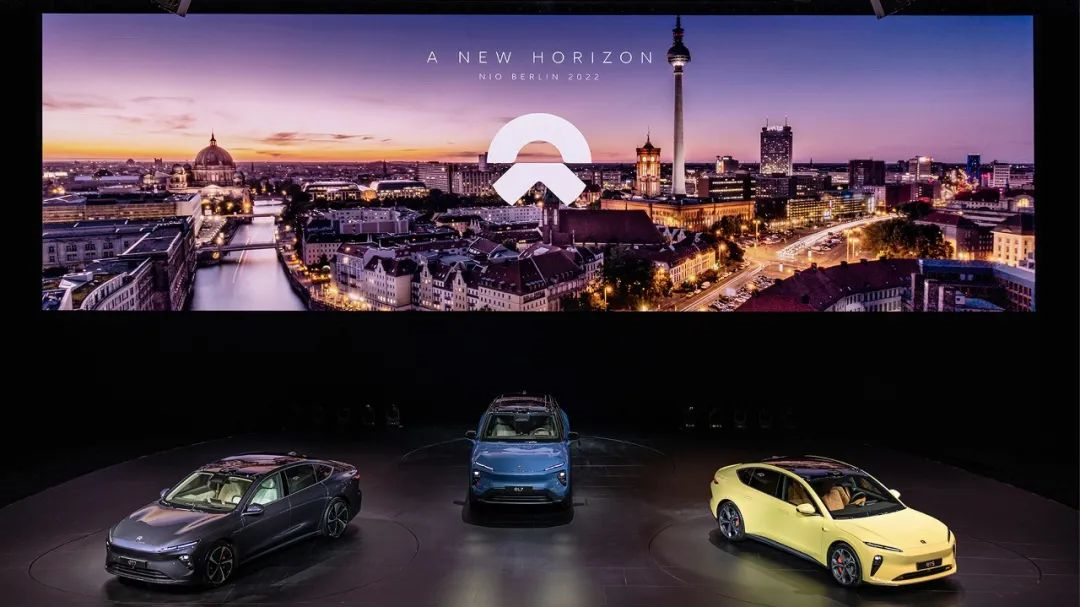Writing by: CH_Chenhan
To put it more broadly, this is a case of cultural export!
On the last night of the National Day holiday, tens of thousands of people kept up late at night for a Chinese automaker’s launch event.
This has never happened before.
Over the years, we’ve stayed up late to watch the Olympic Games, the World Cup, and Apple’s product launch events, but we’ve never been so excited about an overseas car launch.
Until this morning, NIO held its NIO Berlin 2022 event in Berlin, Germany, officially announcing the start of its services in four European markets: Germany, the Netherlands, Denmark, and Sweden.
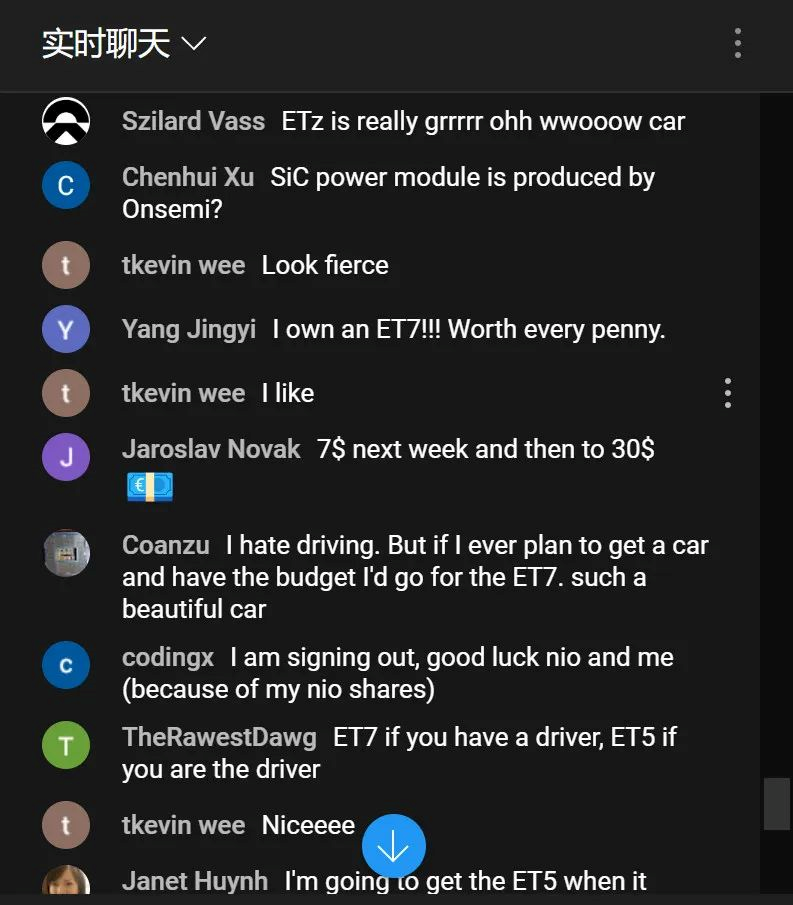
According to Tencent Video, 90,000 people watched this livestream or replay. During the hour-and-a-half live broadcast on the NIO app, Chinese car owners’ comments and barrage never ceased.
On the YouTube live page, the maximum number of simultaneous online viewers was about 1,500, and the discussion in the real-time chat area between NIO fans and investors was raging. The praises for NIO from the overseas “NIO fans” were in no way inferior to those from China.
However, a peaceful atmosphere changed as soon as the pricing and sales policy were announced, replaced by shock, confusion, and more heated discussions on the sales policy.
“Rent-only”! NIO, which has always been active in exploring new business models, has developed a new sales model in Europe, a (whole vehicle) subscription model, which not only opens Chinese users’ eyes but also shocks European consumers.
“Rent-only,” the price is not cheap
It took me a lot of effort to understand NIO’s sales policy in Europe.
On the one hand, there is a language barrier. In the four European countries entered this time, Germany, Denmark, Sweden, and the Netherlands, each has its own language and writing system, and the official website is not in English.
On the other hand, this new sales policy is indeed complex, including terms covering vehicle use, insurance, and services in various areas.
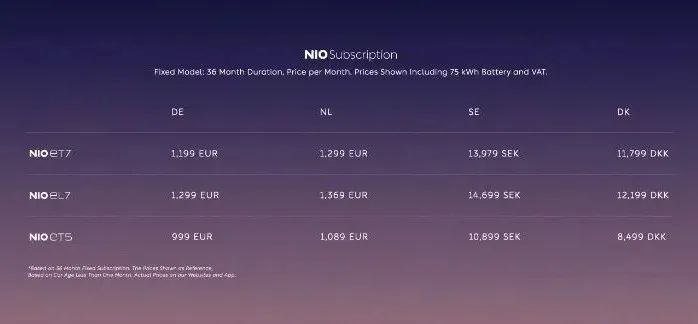
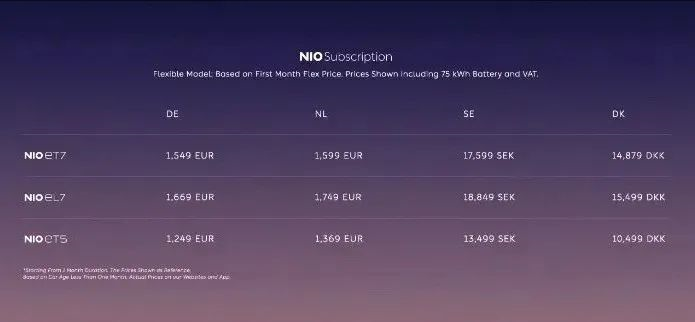
Let’s start with the easiest to understand: pricing.Previously, some self-media with unclear facts or false information claimed that NIO’s cars were cheaper in Europe than in China. However, they were only referring to Norway, where electric vehicles are completely tax-free (including value-added tax). Therefore, NIO’s market price was indeed lower in Norway than in China, but this was entirely due to the difference in taxation. For NIO, the amount of money obtained was essentially the same.
In the new European market, there will be no such problem because these countries are not completely tax-free, and the rental prices always seem to be more expensive than the purchase prices.
Taking the German market as an example, the NIO ET7 with a domestic starting price of 458,000 yuan can be rented at:
- A long-term subscription price starting at 1,199 euros per month, equivalent to 8,308 yuan per month or about 100,000 yuan per year. The fixed rental period can be between 12-60 months, and the longer the rental period, the cheaper the price.
- A flexible subscription price starting at 1,549 euros per month, equivalent to 10,734 yuan per month. The subscription can be cancelled for the next month with at least 14 days’ notice, and other car models can be changed at any time. The rental price decreases monthly, but overall, it is more expensive than long-term subscription.
- There is a free usage mileage of 1,250 km per month, and the excess mileage is charged at 0.3 euros per km.
- As the age of the car increases, the subscription price for the same car will gradually decrease.
In other words, even if calculated at the lowest subscription price, the money spent on renting a NIO ET7 in Germany for 5 years is enough to buy a brand new ET7 in China.
This model is not only unacceptable to most Chinese consumers, but some European users also think that the price is too high.
However, NIO’s business in Europe is much more than just renting cars. Behind the pricing is NIO’s complete service system, including maintenance services, energy replenishment services, and user community services.
Unlike traditional car rental businesses, NIO’s subscription model provides many more services. The subscription price not only includes insurance costs (within 500 euros), maintenance costs, winter tire costs, but also includes maintenance replacement vehicles, free battery replacement, 11kW home charging piles, membership in the user community, free use of NIO Houses, and point incentives.
For orders placed before December 31st, there is also a free pick-up and drop-off service for maintenance and free repair services for minor scratches (within the insurance limit).
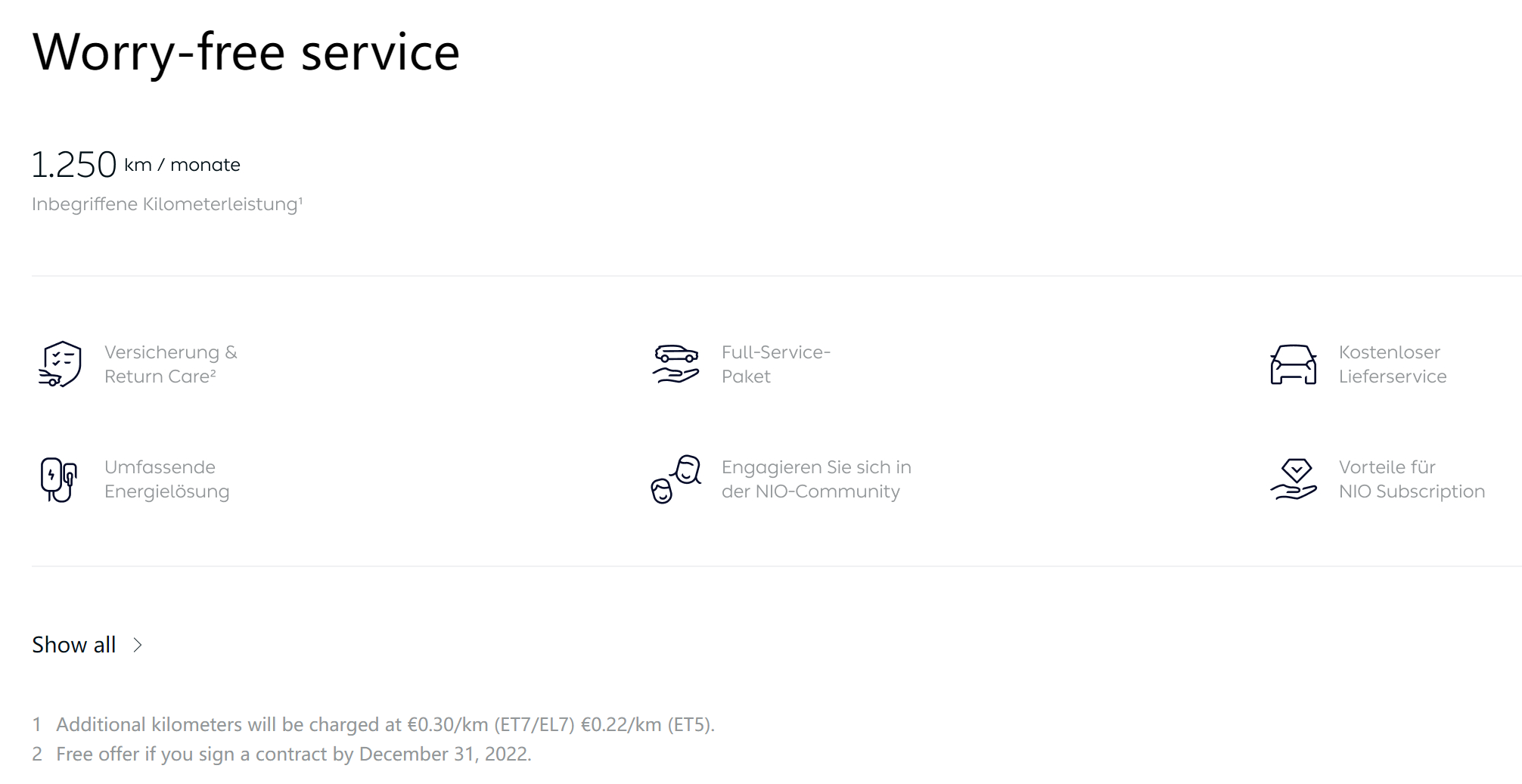 Users can subscribe on NIO’s official website or overseas app and select their preferred color and configuration. The pricing is transparent and the process is flexible.
Users can subscribe on NIO’s official website or overseas app and select their preferred color and configuration. The pricing is transparent and the process is flexible.
Looking at the comprehensive service content, if you want to hold for the long term, NIO’s pricing in four European countries is still on the high side. However, you can save on insurance costs and electricity fees from free battery swapping, which is only 500 euros.
But, the price is not completely unacceptable. At least for those who want to try something new or only want a short-term experience, the threshold for entry is lower.
As for Chinese consumers, if international tourism opens up again and you want to travel to Europe, renting a NIO car is not expensive.
“Why ‘Rent Only, Not For Sale’?”
This is the most asked question by both domestic and foreign onlookers.
As of now, NIO has not yet responded to this issue. The media communication session regarding this event will be held at 4 pm today. If you want to know more official news, please follow our subsequent tweets.
Before that, with our familiarity with NIO, in fact, we can analyze quite a bit.
Firstly, it must be a problem with production capacity. Due to various reasons, NIO’s production capacity is currently struggling to supply the domestic market, especially for the pre-ordered popular model, ET5. Demand from the domestic market will be saturated until at least June next year.
From the delivery time in the European market, we can see that NIO is currently unable to deliver large quantities of cars in Europe. NIO ET7 began delivery in Germany and the Netherlands on October 16 and in Sweden and Denmark on November 15. NIO EL7 (formerly known as ES7 due to naming disputes with Audi S7) and NIO ET5 will not be delivered until January 2023 and March 2023, respectively.
Under such circumstances, “rent only, not for sale” may be a more appropriate choice. Suppose there are only 200 cars, which can be sold to a maximum of 200 customers. However, they can be rented to 2,000 people for experience.
For NIO at this stage, the primary task in Europe is not to sell how many cars, but to let more people know about NIO. Improving global influence and verifying the landing situation of the direct sold system overseas is the current work focus of NIO in overseas markets.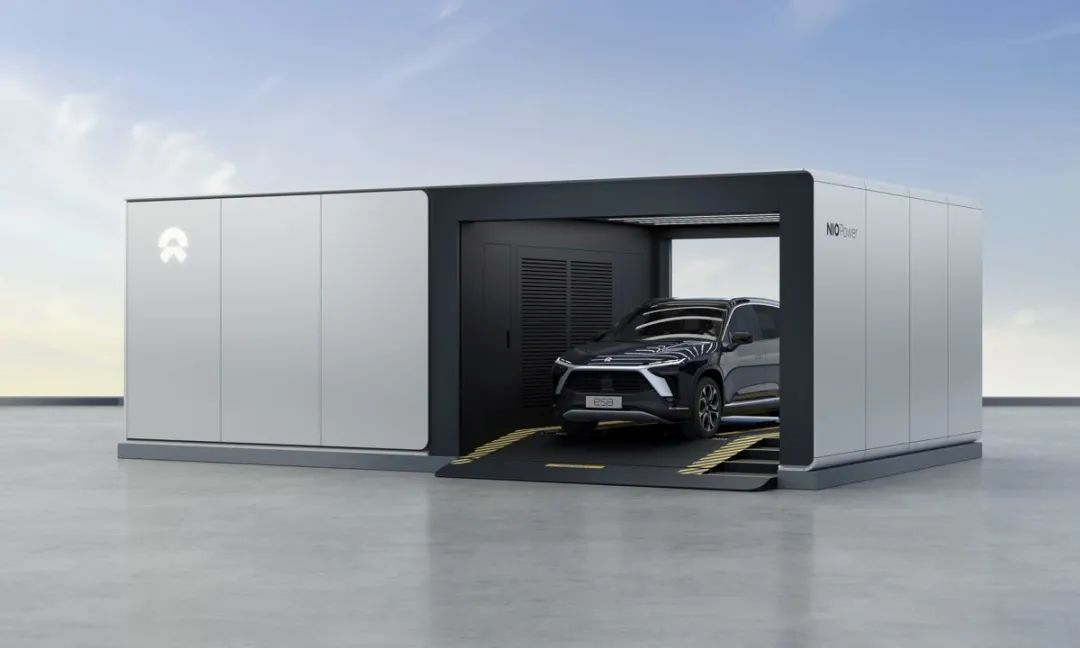
Next, we have the issue of battery ownership.
Due to the varying legal systems in different European countries, allowing batteries owned by users to circulate between different battery swap stations in Europe entails legal risks.
Therefore, in Norway, where NIO cars were only sold through the BaaS battery rental service, one-time buyers cannot use the battery swap station at all.
Perhaps the lack of legal support for the separation of electric vehicles and batteries in the four new countries that NIO entered, or the desire to adopt a unified sales policy, or to increase the utilization rate of battery swap stations, NIO did not replicate the sales model in Norway in the new markets.
Personally, I speculate the third reason, which is to increase the utilization rate of battery swap stations, is more likely. Only by making full use of the services and facilities can problems be fully exposed. After all, the experience accumulated in the domestic market may not apply in Europe.
In the initial stages, in the case of limited vehicle resources, it is more beneficial for NIO to have users actively “gamify” battery swapping.
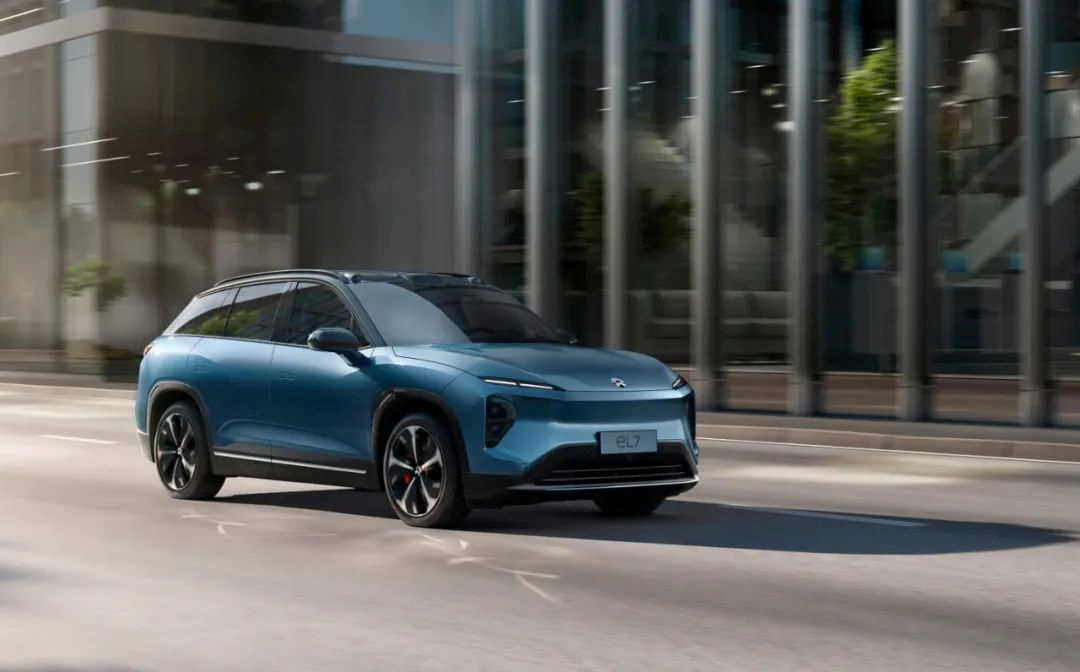
Lastly, on the aspect of competitiveness.
In the NIO App, user strei asked: “Is the car subscription business model a proactive innovation or a passive one?”
Li Bin’s reply was: “Turning passivity into initiative.”
This is a concise reply.
When NIO goes abroad, there are definitely many obstacles, such as passive brand recognition, imperfect sales services, inadequate production capacity, and conflicts between battery swap and battery ownership, which can all be resolved or alleviated by the proactive subscription model.
If NIO were to sell directly, it would essentially give up its core competitiveness of battery swap and take a big hit on the competitiveness of its car models and user experiences.
If it reused the BaaS battery rental model, one still has to spend two to three hundred thousand RMB to own a NIO car and still continue to pay battery rental fees.

In the European market, which is unfamiliar with NIO and has a strong regional protection mentality, NIO’s influence and competitiveness lag far behind Tesla and German luxury cars. Moreover, with the use of a fully direct sales model and the lack of a mature dealer network and local relationship network, it is unlikely that NIO will have great short-term success in Europe.Instead of competing head-to-head with Tesla or other locally-produced electric vehicles in Europe, it’s better to enter the rental car market, lower the threshold, and give more people the chance to experience NIO’s products and services. For about ¥10,000 RMB per month, Europeans can’t rent a brand-new Mercedes EQE, but they can freely choose and enjoy a brand-new NIO ET7 for a month.
Thinking about it this way, the competitive advantage of the subscription model emerges, right?
Entering Europe with Obstacles and Opportunities
Before watching this press conference, I originally wanted to say more about the significance and historical mission behind NIO’s entry into the overseas market. However, the new business model shifted everyone’s focus to a more timely discussion value.
NIO’s big move into Europe is not only a big deal for NIO, but also for the Chinese automotive industry.
This is not the first time that a Chinese car company has used a direct sales model to sell overseas, but it is definitely the first time that a Chinese car company has fully copied the mature sales and service system from China to overseas.
During this one and a half hour press conference, NIO once again introduced foreign users to the model information, battery swapping stations, NOMI, NIO Power, NIO House, NIO Service, NIO Pilot, and NIO Life that domestic car owners are familiar with, as if opening a door to a new world for European users.
In particular, when introducing the cute “little brain” NOMI inside NIO’s car, the reaction of foreign users was exactly the same as that of domestic users years ago. The cute image, vivid expression, and intelligent voice capability instantly captured everyone’s hearts.
Humanity is universal, and there is no difference between Chinese and foreign people in their desire for good things and a pleasant life.
NIO’s advocate of a pleasant lifestyle and user-centric service concept will be its most solid soft power in responding to brutal market competition.
NIO’s entry into Europe is different from any other Chinese brand’s entry into overseas markets ever before.
Broadly speaking, this is a cultural output.
NIO’s products, services, and innovative business model are bound to change European consumers’ perception and attitude towards Chinese cars.By the end of 2022, NIO will have built 20 battery swapping stations in Europe, and over 120 stations by the end of 2023. In addition to the already operational NIOhouses in Oslo and Berlin, 8 more NIOhouses will open in Europe in succession.
A 150 kWh battery pack will be introduced in Germany next year, and NIO Pilot assisted driving and NAD autonomous driving will be gradually opened in Europe. NOMI currently supports English, German, and Norwegian, and will support Dutch, Danish, and other languages in the future.
“To bring NIOhouses to Europe, to build battery swapping stations in Europe, to introduce intelligent driving and intelligent cockpit to Europe, and to sell luxurious electric cars to the inventors of automobiles, it’s time to let the old powerhouse feel the power of China’s intelligent electric vehicle competition.”
Of course, in this period of “reverse globalization”, the overseas expansion of Chinese automakers will be even more difficult, not to mention implementing an unprecedented direct sales and service system in Europe.
The road ahead is long, as Li Bin said in response to users:
“Thank you all for your support! In this uncertain time, it is the courage you have given us that keeps us going!”
We hope that NIO will continue to push forward, and that everyone will continue to support Chinese cars going global!

This article is a translation by ChatGPT of a Chinese report from 42HOW. If you have any questions about it, please email bd@42how.com.
